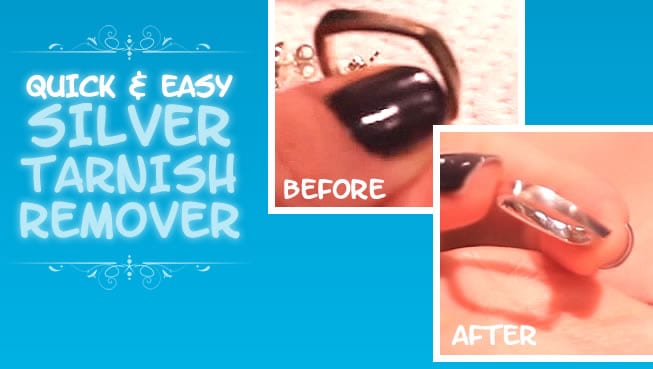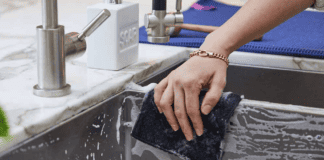Living in a family is warm and fuzzy. But, let’s be honest, it also comes with its fair share of challenges. One of the challenges that I hear about often is how frustrating it is to get everyone on the same level when it comes to cleaning. Whether it’s parents talking about how to get your kids more involved in cleaning or spouses talking about the other person – who perhaps is overly tidy, or not tidy enough. So, let’s cover off seven different strategies to help you get your family in the groove when it comes to cleaning.
Now, before you get started with any of these strategies, you’ve got to keep in mind that you might have to have some uncomfortable conversations with your family. However, if you can come together and have these conversations, I promise you, you will walk out better for it.
Common Goals
Understanding what clean means to each family member is an important starting point. The idea is to get everyone on the same page about cleaning and what it means to them. That way everybody else in the family will start to understand what the common vision and goal should be when it comes to a clean house. For example, if one spouse or partner is overly clean and the other one is overly messy, it helps for each of you to understand the other’s vision. Then you can come together and figure out a nice level playing field for both of you.
MIA’s (Most Important Areas)
This is such an important concept to me that I actually made it the first step in the maker method. It is basically the backbone of the book. Figuring out what your MIA’s are, is really important. Let’s be honest, you’re not going to clean your whole house all the time. No one expects that of you. However, what makes sense is to figure out those areas that are really important to you. The ones that get that guttural reaction from you when you see it messy. It just drives you crazy and when you see it clean, it makes you feel good.
You need to sit down at the table with your family and talk about what’s important to each member – their MIA’s. So, if it’s two spouses sitting down it will give the other person insight as to what they can do to keep their spouse happy and content when it comes to cleaning and organizing.
For example, in our house, the kitchen is really important to me as an MIA. Specifically, the kitchen sink, counter, and dishwasher. If the dishwasher is still full and there are plates on the counter and the sink is dirty, it just freaks me out and I don’t like cooking in there. For Chad, the bedroom is an MIA, specifically, the bed and the bedroom floor which can get a little cluttered with laundry. So, I know to be respectful of that and so I always try to put my laundry away.
Who Likes To Do What
There’s no sense in assigning a cleaning task to someone if it’s going to make their blood boil. When you’re having this conversation figure out if there’s anything that needs to be done, an MIA or a cleaning task, that someone in the household actually likes doing – or doesn’t detest.
For example, you guys know by now, I hate vacuuming. So, guess who doesn’t vacuum unless there’s a vacuuming emergency? That’s right, me! On the other hand, I clean the kitchen (like a champion!) and Chad doesn’t really have to worry about it because I like doing it.
Challenging Routines or Spaces
This is basically the time where you air out your dirty laundry with your family. You get everything out in the open. You tell them if you think something is going to be overly time-consuming, or frustrating, or difficult. The reason for this is if you keep it in and then agree to do something that’s not really doable – this won’t lead to anything positive for you or your family.
You have to be frank and honest. Get everything out on the table and then talk through it. If there’s a bunch of cleaning tasks that no one really likes doing but it’s clearly something that needs to be done, consider something creative like putting all of the tasks in a hat everybody draws one out until you run out of tasks. Sort of like a “cleaning draft”. The point is, it has to be fair, it has to feel equitable, and you have to talk about it so that everyone feels good.
Tweak Your Routines
A family cleaning routine is a living breathing thing. It’s going to evolve over time. People might take tasks on and realize that it’s too painful physically for them to do, or maybe just it’s too time-consuming. So, as you go through and you set up this cleaning you have to really feel it out for yourself. Customize it, put it together and then tweak it and change it along the way. There is no one right answer!
This is how you come up with a cleaning routine that really works, and if you can do this, everyone in the family will be much happier and more productive.
Consider Your Timing
Timing is a critical discussion point when it comes to cleaning. We’re all busy people. You’ve got a whole bunch of things going on during the week and you probably don’t have a ton of hours to carve out to focus on cleaning! There are some of you out there who might not clean at all. And if you’re one of them, you’re thinking, how can I go from zero to a hundred and get everyone cleaning right now?
I’m not telling you that you need to get yourself up to two hours of cleaning every week. If you can get yourself to ten minutes of cleaning a week, you’re making an incremental improvement. So, when it comes to timing, be realistic. Think about what time you have available during the week and when you can spend that time. Whether it’s late at night, early in the morning or on a weekend, whatever works for you and your family (and your schedule) is what you should allocate.
If you have unrealistic expectations or have an all-or-nothing mentality, you’re never going to get any cleaning done. Then you’re just going to feel like you’ve failed before you even started. So, set the bar low, you have my permission, meet that baseline and then creep it up little by little.
Schedule the Larger Jobs
When I used to work at the bank, we had this annual strategic planning session. We would look at the overall goals and larger events for the year. It basically gave everyone in the branch the opportunity to look a year in advance. Then schedule and plan out the things that they needed to do to contribute to the growth of the organization.
When it comes to cleaning, you can apply this idea as well. You can sit down with your family and have a strategic “cleaning meeting”. Here you can think about the larger cleaning tasks that need to be done. For example, what are you going to do for spring cleaning? How frequently are you going to clean your appliances, or clean the garage?
Whatever it is, if you just leave them, they really aren’t going to get done. This is because no one feels accountable to them. However, if you sit down and have a planning meeting, you’ll be able to book in dates and times and assign tasks to people. Then it’s booked, it’s done, and everyone knows what they need to do.
I hope these tips were helpful. And trust me – if you stick to these basic principles it will keep your household running like a well-oiled machine.
COMMENT QUESTION: How do you get your kids to clean?
Looking for a BETTER & EASIER Way to Clean Your Home?
Cleaning Expert Melissa Maker is here to help with her game-changing 3 Wave Cleaning System that will help you clean your house faster and easier than you ever thought possible!


















Hi Melissa
Sure like all your tips and tricks! Even though I put vinegar in my dishwasher there’s on place in your dishwasher that gets often neglected and that is the door hinge! If you open up the door and run your hand along the lower edge of the door you get soap scum and it can build up fast.
In one of your recent videos I noticed you were bought a store product for cleaning you toilet; what were you using?
Thank you! That’s a great tip about the door hinge.
We typically use our own toliet bowl cleaner, so not too sure which video you are referring.
Oh. I thought when I first read the subject line of the e-mail that it said “How To Get Your Family Clean!” If you follow the link to the product I used to sell, you’ll see why I would’ve been interested in that (if I were still in biz).